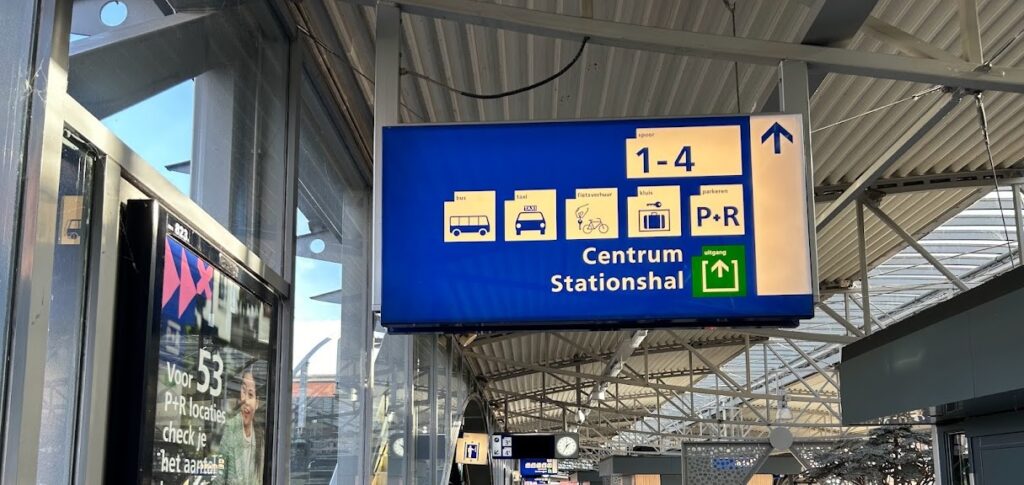The mayor and aldermen of 's-Hertogenbosch has established new regulations to guarantee the quality and enforcement of street taxi transport within the municipality.
With the introduction of the new “Street Taxi Transport Regulation 's-Hertogenbosch 2024”, which will come into effect on July 1, 2024, the taxi industry in 's-Hertogenbosch is undergoing a significant change. This revision, determined by the local council on March 5, 2024, is intended to increase the quality and reliability of street taxi transport in the city. The regulation, based on the Passenger Transport Act 2000 and the Municipalities Act, establishes new rules and permit conditions that are important for both drivers and consumers.
The core of the new regulation is the introduction of the BTx permit, a mandatory permit for all street taxi drivers in 's-Hertogenbosch. This permit, which is valid for five years, is only granted to drivers who meet strict conditions, such as having a valid full driver card, a recent Certificate of Good Conduct (VOG), and connection to a recognized customer assessment system. With these measures, the municipality of 's-Hertogenbosch aims to guarantee safer and more reliable taxi transport.
A striking innovation within the regulation is the emphasis on the customer assessment system. This system, intended to promote transparency and self-regulation in the taxi industry, allows passengers to provide feedback on the quality of service. Drivers are required to join this system, if available, which will have a direct impact on the visibility of the quality of individual taxi services.

SBK will be dissolved, giving the municipality full responsibility for issuing taxi permits. By emphasizing quality, sustainability and customer satisfaction, 's-Hertogenbosch is taking a step forward in the development of a future-proof and customer-oriented taxi sector.
Furthermore, the regulation includes specific rules regarding the provision of street taxi transport, including the prohibition of offering services without the required BTx permit and the designation of specific locations where street taxi transport is permitted. The regulation also introduces rules of conduct for drivers with a BTx permit, including regulations on the recognizability of the driver and the vehicle, as well as guidelines for submitting complaints and customer reviews.
De municipality of 's-Hertogenbosch With this regulation, it has sent a clear signal about the importance of quality, safety and reliability within the taxi industry. The introduction of the BTx license and the emphasis on customer reviews reflect a modern approach to urban passenger transport, protecting the interests of both consumers and honest entrepreneurs.
revision
De revised regulation places specific emphasis on sustainability by encouraging the use of zero-emission vehicles and implementing a customer rating system. This system allows passengers to provide feedback on the service, which contributes to a more transparent and better quality taxi market. Drivers must meet training requirements that include knowledge and skills in lifesaving operations, local geographic and event knowledge, and the Dutch or English language.
The introduction of the new rules is in response to the increasing demand for a safer, more reliable and more environmentally friendly taxi service. With an emphasis on quality, integrity and professionalism of drivers, the municipality of 's-Hertogenbosch hopes to improve the experience for both residents and visitors. The sanctions matrix, an integral part of the regulations, provides clear guidelines for enforcing the regulations and dealing with violations. This matrix distinguishes between minor, medium and serious violations, with associated sanctions ranging from warnings to the withdrawal of permits.
experiences
The experiences with customer rating systems in Europe show that, despite some challenges, these systems can make a positive contribution to improving the quality and reliability of taxi services. In cities where customer rating systems have been implemented, an increase in service quality is often observed. Drivers are more likely to pay extra attention to customer service and the cleanliness of their vehicle, as these directly influence their ratings.

Customers gain more insight into the quality of drivers, leading to a more informed choice for consumers. This increases confidence in taxi services and can contribute to a more positive general image of the taxi industry. Drivers are motivated to improve their services to get better ratings. This encourages a form of self-regulation. Furthermore, competition between drivers can lead to an overall improvement in quality within the sector.
Despite the benefits, customer rating systems have also received criticism. One concern is the subjectivity and potential for abuse of the system. Unrealistic customer expectations or unfounded negative reviews can have a disproportionate impact on drivers. Additionally, external factors, such as traffic that is beyond the driver's control, can lead to falsely negative ratings.
To optimize the effectiveness of customer rating systems, some cities and platforms have made adjustments, such as offering drivers a way to respond to reviews, filtering out unfounded reviews, and developing guidelines for both drivers and passengers on how to use the rating system .




